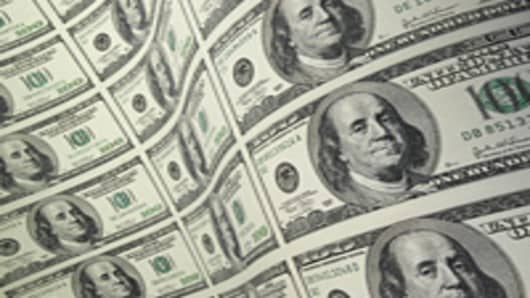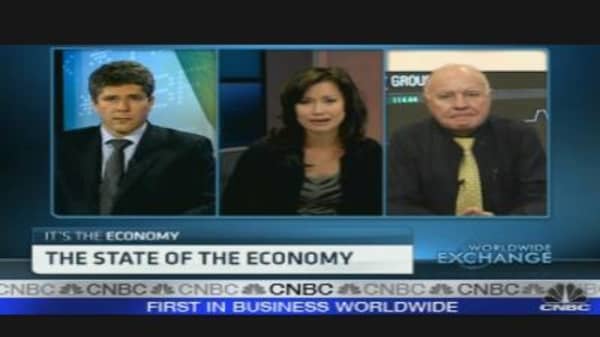The Federal Reserve will create a "final crisis" by continuing to print money because it is underestimating the strength of the economy, Marc Faber, the author of "The Gloom, Boom and Doom Report," told CNBC Tuesday.
And investors who share his bearish view would be better off holding stocks instead of bonds in their portfolios, Faber said.
Analysts have said the Fed will decide to re-start easing monetary policy, possibly by buying assets, as early as Aug. 10 when the next meeting over policy is scheduled.
"Investors should have listened to me already six months ago when I wrote that the Fed will continue to monetize … they will print and print and print until the final crisis wipes out the whole system," Faber said.
Fed Chairman Ben Bernanke has "no clue what the economy is doing," and the Fed "misread in the last few months the strength of the economy," he added.
He sees "significantly more" quantitative easing ahead. A report in the Wall Street Journal said the Fed might decide on buying government bonds or mortgage bonds again.
David Bloom, head of foreign exchange strategy at HSBC, said he has "no doubt that the Fed is going to step on the accelerator" at its next meeting but that Faber's view was too gloomy.
"It's a bit extreme from my view, I think we're not quite at those draconian points," Bloom said.
In the euro zone, authorities are trying to roll back quantitative easing while Japan has no such program despite deflation, he noted.
"It just seems all over the place for the moment … I think there's absolutely no doubt that the US will believe they can grow their way out of this."
US Treasurys are likely to suffer because of the Fed's policy, said Faber, echoing a view expressed earlier by Jim Rogers who told CNBC he had a small short position in US government bonds.
"I think that everybody in the world has some concerns about the ultimate value of the US dollar and also about the value of US government bonds because if the fiscal deficits stay at this level … then obviously you will have a credit problem in the US at some point," Faber said.
This is why he is "not all that negative" on stocks.
"I think that equities should be represented in a portfolio, in particular if you're very bearish about the world, you're better off in equities than in bonds," Faber said.




